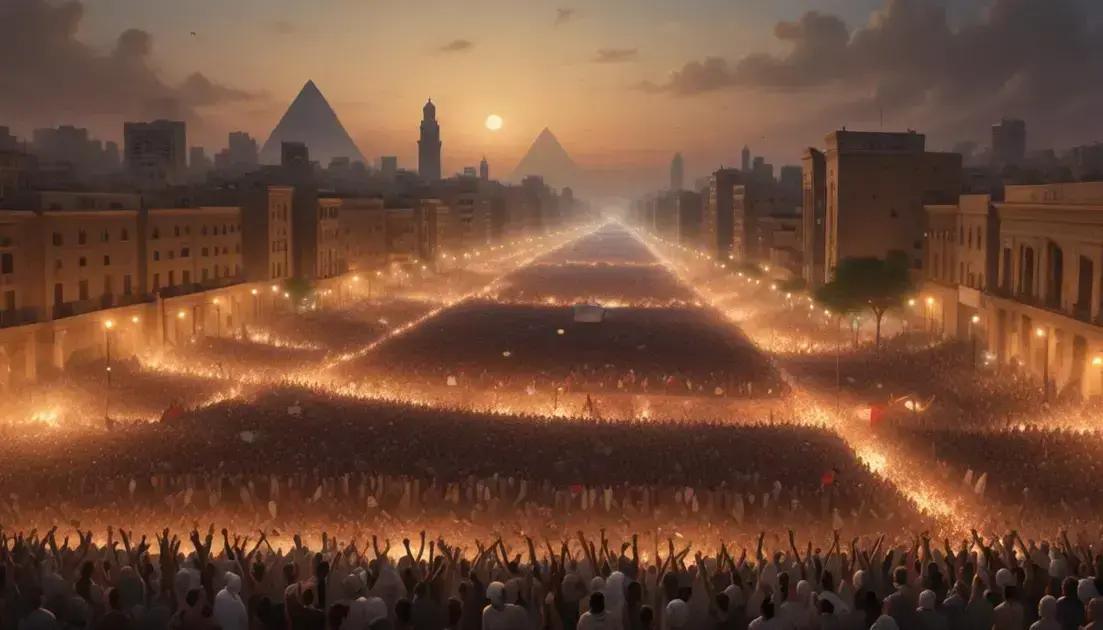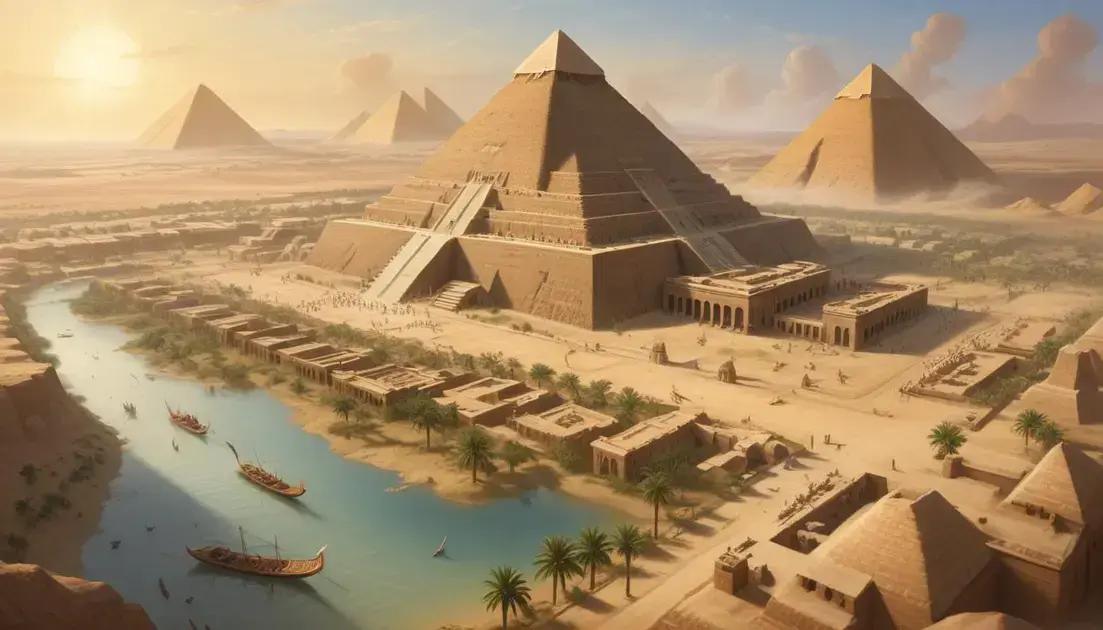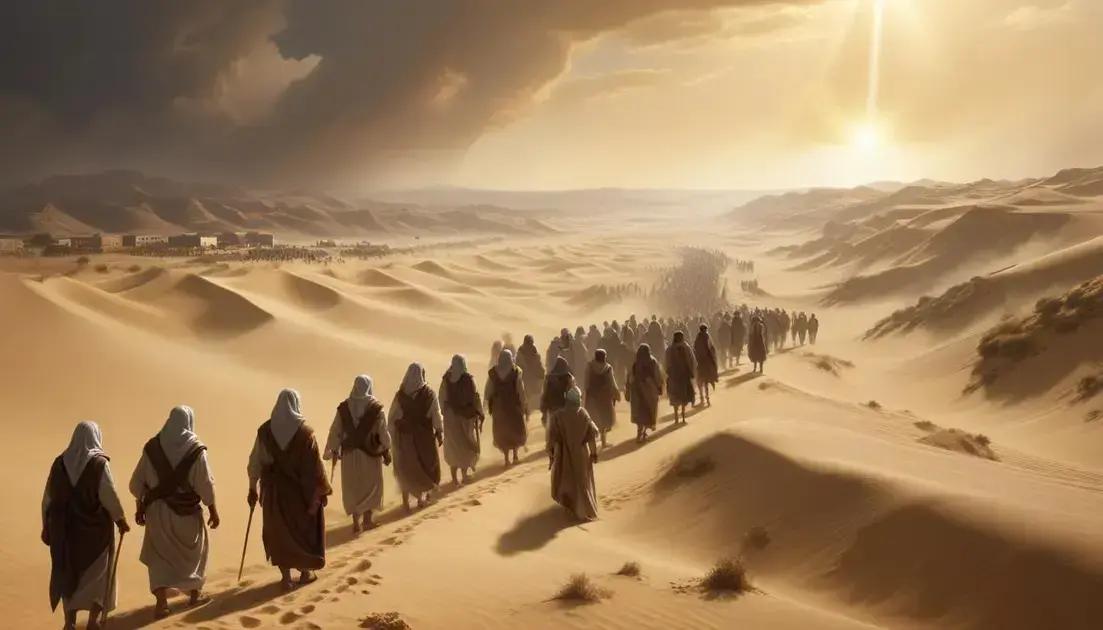
January 25: Mubarak’s Fall and Egyptian Awakening
The aftermath of the Egyptian Revolution demonstrated ongoing political challenges, including power struggles, economic issues, and human rights violations. As citizens continue to demand change, their quest for freedom highlights the need for effective governance and unity. These obstacles complicate Egypt’s transition toward democracy, but the spirit of activism remains strong, fostering hope for a better future.
The Egyptian Revolution forever changed the landscape of the Middle East, igniting hopes for democracy but also leading to a maze of uncertainties. What drove a nation to rise against tyranny?
The Role of Social Media in Mobilizing Protests
Social media played a huge role in mobilizing protests during the Egyptian Revolution. Platforms like Facebook and Twitter allowed activists to communicate quickly and easily. This made it possible for people to share information and organize events on a large scale.
Connecting People
Before social media, spreading ideas took a lot of time. But with just a few clicks, anyone could reach thousands. This made it simpler to gather crowds and build support for the protests.
Sharing Stories
Social media also helped share personal stories about the struggles people faced under Mubarak’s regime. Videos and photos went viral, showing the world what was happening in Egypt. This caught the attention of news outlets and global supporters.
Creating a Sense of Community
Online platforms created a sense of community among protesters. Hashtags like #Jan25 united people across different regions. This connected them, making them feel less alone in their fight for freedom.
Through social media, users could express their frustrations and hopes. This raised awareness about the movement and kept the momentum going. The power of a post or a tweet should not be underestimated.
Key Events Leading to Mubarak’s Downfall
Key events stretched over several weeks that led to Mubarak’s downfall during the Egyptian Revolution. Each step built on the last, creating a wave that swept him from power.
Triggering Protests
His downfall began on January 25, 2011. Egyptians took to the streets to protest high unemployment and rising food prices. They wanted change, and their voices were heard loud and clear.
Mass Mobilization
As protests grew, thousands joined in Cairo’s Tahrir Square. This became the heart of the movement. People from all walks of life stood together, united by a common goal.
Government Response
The government’s heavy-handed response only fueled anger. Security forces clashed with protesters. Images of brutality spread quickly, showing the world the regime’s harsh tactics.
Calls for Resignation
As demonstrations continued, calls for Mubarak to resign intensified. Activists organized marches and rallies, urging him to step down. The pressure mounted day by day.
International Attention
Global leaders watched closely. Support for the protesters grew, and many condemned Mubarak’s actions. International media coverage helped amplify the demands for change.
The Aftermath of the Uprising
The aftermath of the Egyptian Revolution brought many changes and challenges. After Mubarak stepped down, Egypt faced a path filled with uncertainty.
Political Turmoil
Initially, many hoped for a bright future. However, political turmoil quickly followed the uprising. Different groups struggled for power, leading to confusion and unrest.
New Government Challenges
The new government faced significant challenges. Issues like unemployment and poverty persisted. Many people were dissatisfied with the slow pace of change.
Protests Continued
Even after the revolution, protests continued in the streets. People demanded real reforms and better living conditions. The spirit of activism remained strong among the citizens.
The Role of the Military
The military played a critical role in the aftermath. They took control during the transitional period. Many feared military influence would hinder true democracy.
International Reactions
International reactions varied. Some countries offered support, while others criticized the ongoing violence. Egypt’s reputation on the world stage was at stake.
Enduring Legacy
The uprising left a lasting impact. It inspired movements in other countries. People saw that change was possible, even in repressive regimes.
Ongoing Political Challenges in Egypt
Ongoing political challenges in Egypt remain a major concern after the Egyptian Revolution. The move towards democracy has faced many obstacles along the way.
Struggles for Power
Different political groups fight for control. This creates instability and confusion. Many Egyptians feel frustrated by the lack of clear leadership.
Economic Issues
Economic problems continue to plague the country. Unemployment rates are high, and inflation affects daily life. Many people struggle to make ends meet.
Human Rights Concerns
Human rights violations are reported frequently. Critics of the government often face intimidation and arrest. Freedom of speech is still a pressing issue.
Terrorism and Security
Security threats from extremist groups add to the challenges. Terrorist attacks have happened in various parts of the country. This increases fear and affects tourism and safety.
Public Discontent
Public discontent remains high. Many protests occur as people demand their rights. The government must respond better to citizens’ needs and concerns.
Future Outlook
The future of Egypt’s political landscape is uncertain. Many hope for progress, but history shows the path can be rocky. Engaging with the people is crucial for any real change.
Conclusion
In conclusion, the events surrounding the Egyptian Revolution showed a strong desire for change. However, the ongoing political challenges highlight the complexity of building a better future. Issues like power struggles, economic difficulties, and human rights concerns continue to affect the country.
It’s clear that many Egyptians seek freedom, safety, and better living conditions. The road ahead may be tough, but with the spirit of activism alive, there is hope for real change. Engaging with citizens and addressing their needs is essential for Egypt’s future. Only through unity and perseverance can a brighter tomorrow be achieved.


